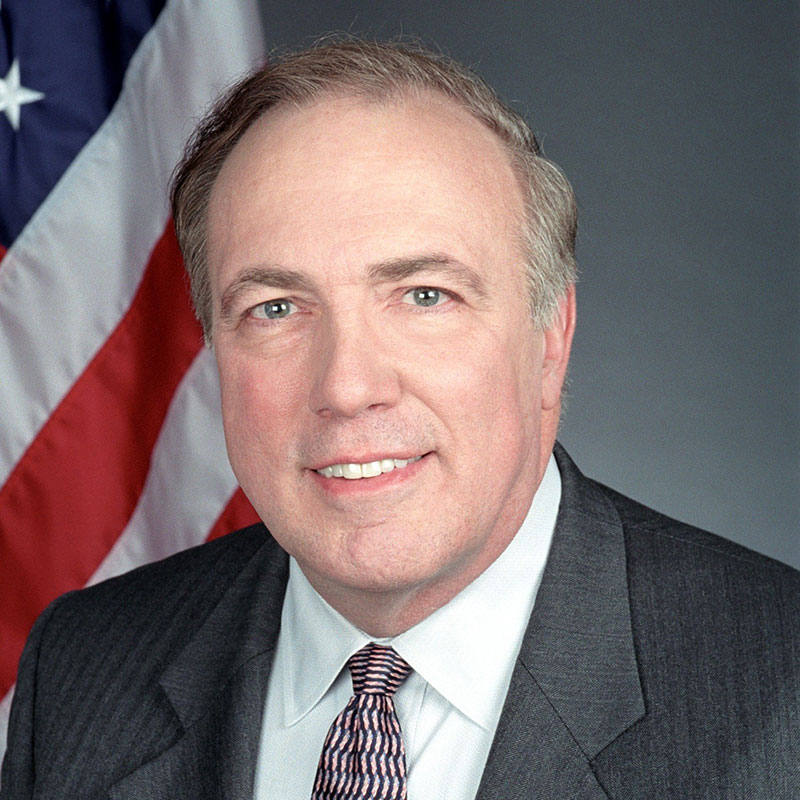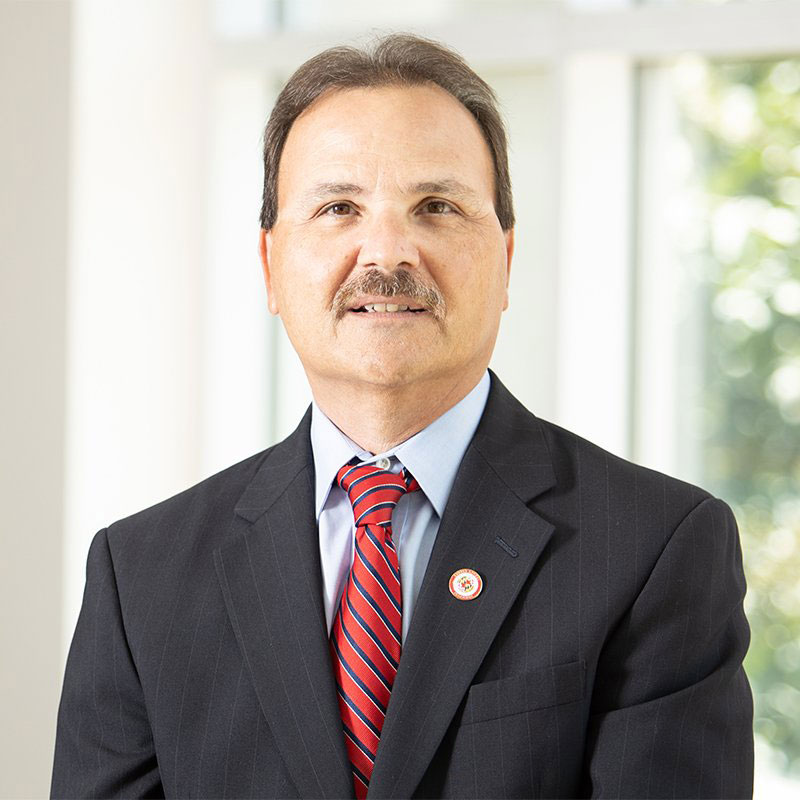Climate Finance and Risk Management at UMD
The University of Maryland combines its world-class expertise in climate science, finance, and public policy to prepare our partners to plan for and respond to the opportunities and risks of a changing climate.
The Effects of Climate Change

As the effects of climate change intensify, the risks it poses are undeniable—but so are the opportunities for companies prepared to act. In this unprecedented landscape, forward-thinking organizations can find a competitive edge by mastering climate-related risk management and seizing emerging investment opportunities. Success requires not only strategic foresight but also a deep understanding of both the financial and scientific impacts of climate change. The University of Maryland combines its world-class expertise in climate science, finance, and public policy to prepare our partners to plan for and respond to the opportunities and risks of a changing climate.
Across the College of Computer, Mathematical, and Natural Sciences; the Robert H. Smith School of Business; and the Smith Enterprise Risk Consortium, UMD has a unique and integrated science and finance approach to the climate finance field.
The University of Maryland’s academic and outreach climate finance ecosystem is built upon historical relationships with governmental agencies, new thought leadership, groundbreaking research and the search for truth. Partners and local neighbors include NIST, NOAA, NASA and the Joint Global Change Research Institute.
Climate Research
Managing Model Risk in Financial Climate Risk Assessment
Working Paper
Authors: Michael Gerst, Tim Canty, Clifford Rossi
The global change science community and the financial sector are both characterized by significant reliance on quantitative models to make predictions and understand risk. Matching scientific model capabilities with user needs is a challenging process and will be exacerbated in the financial sector because of model risk regulatory requirements designed to mitigate the risk of systemic improper model use. The authors elaborate on this challenge, inform the science and financial communities of current model risk practices and requirements, and sketch model risk potential solutions.
Do Fund Managers Misestimate Climatic Disaster Risk
The Review of Financial Studies
Author: Russell R. Wermers
After examining whether professional money managers overreact to large climatic disasters, the author finds managers within a major disaster region underweight disaster zone stocks to a much greater degree than distant managers. This aversion to disaster zone stocks is related to a salience bias that decreases over time and distance from the disaster, rather than to superior.
Regional Climate-Weather Research and Forecasting Model
Bulletin of the American Meteorological Society, Author: Xin-Zhong Liang et al.
The CWRF is developed as a climate extension of the Weather Research and Forecasting model (WRF) by incorporating numerous improvements in the representation of physical processes and integration of external (top, surface, lateral) forcings that are crucial to climate scales, including interactions between land, atmosphere, and ocean; convection and microphysics; and cloud, aerosol, and radiation; and system consistency throughout all process modules. This extension inherits all WRF functionalities for numerical weather prediction while enhancing the capability for climate modeling. As such, CWRF can be applied seamlessly to weather forecast and climate prediction.
How Exposed Is Your Supply Chain to Climate Risks?
Harvard Business Review
By Sandor Boyson, Michael D. Gerst, Laharish Guntuka, Tom Linton, Greg Muraski, Bindiya Vakil, and Sumit Vakil
Climate change is posing major challenges to supply chains. This article — based on a collaborative research project conducted by the University of Maryland and supply-chain-mapping firm Resilinc — assessed the climate-related risks of 12,000 supplier sites in the United States, China that serve 100 original equipment manufacturers in the high tech, auto, and consumer goods industries. It offers advice on how OEMS can improve their resiliency to climate-related disruptions.
Science and Technology Issues in Regulating Climate-Related Disclosures
The SciTech Lawyer
Written by Robert F. Brammer
Increasing numbers of companies are providing climate-related disclosures because of concerns among investors and regulators about the potential for financial impacts from climate change. These disclosures, which are voluntary today, describe organizational actions to reduce climate impacts and provide investors with information about climate-related risks and mitigation measures. This paper focuses on science and technology issues and provides recommendations to professionals interested in working in this arena.
Understanding Climate Risks: A Blueprint for Financial Regulators
Featuring Cliff Rossi
Findings presented to Federal Housing Finance Agency: Climate and Natural Disaster Risk Management at the Regulated Entities, Public Listening Session
Cracking the Code on Climate Economic Scenarios
Presented by the Center for Financial Policy, Panel Discussion Webinar
Featuring Leon Clarke, Cliff Rossi, and Russell Wermers
- A Blueprint For Solving The Homeowners Insurance Crisis: Providers abandoning Florida and California isn’t as bad as it gets
- Supply Chain Mapping, Not Climate Prediction, is Key to Mitigating Risk for Corporate Boards
- BankThink Property-level climate risk scores are unreliable and harmful
- How vulnerable is your pharma facility to natural disaster?
- UMD Experts: Pharma Facilities Sit in Path of Tornadoes, Other Weather Disasters
- New Analysis Examines Hurricane Risk Implications for Low-to-Moderate-Income Mortgage Borrowers
- Improving U.S. Banking Regulation in an Era of Climate Change
- Is Your Maryland Home At Risk for Damages from Climate Disasters?
Climate Finance and Risk Management Course
Climate change has increasingly affected almost every aspect of society and the economy. While this trend poses systemic risks, it also creates opportunities for companies to gain an advantage through effective risk management and investment opportunities. Significant challenges will emerge in crafting business strategies that account for the effects of climate change. This is perhaps most true for companies' finance and risk areas, which must incorporate climate risk information across diverse economic sectors to understand climate change’s effect on financial disclosures, their customers, portfolio valuation, guarantee fee pricing, and risk transfer strategies, among other topics.
UMD’s Executive Education training course in Climate Finance and Risk Management is designed to provide finance and risk professionals with the background they need to: understand the latest scientific thinking and models related to climate change, assess the strengths and weaknesses of climate models, review the challenges of translating climate model outputs into meaningful economic scenarios for financial and risk analysis, and review potential industry and regulatory developments on climate change.
Audience
- Managers, leaders, and executives from: financial and non-financial companies, federal, state and local governments, and non-profit organizations
- Professionals facing the challenge of incorporating climate risks into their business models and those seeking an understanding of climate models and how to evaluate the models for their organization’s objectives
Structure
The course is online and completely self paced. It will take approximately 20-30 hours to complete all four modules. Activities include video lessons, readings, knowledge checks, and interactive discussion boards. Upon successful completion of this course, participants will receive a certificate of completion and are eligible for 2.2 Continuing Education Units (CEUs).
Topics
- Climate Change and the Financial System
- Climate-Related Financial Disclosures
- A Detailed Look at Climate Models
- Climate Scenario in Portfolio Analysis and Risk Management
Dates
SIgn up today and begin as soon as you are ready.
Tuition
Tuition for the online course is $1995.
Course Brochure
Learn more about the course topics and learning objectives.

Bob Brammer, PhD
President and CEO, Brammer Technology
MA '70; PhD '72, Mathematics
Dr. Robert Brammer is the President and CEO of Brammer Technology, a consultancy focusing on advanced information technology, environment and climate, and security. He is also an Adjunct Professor in the Department of Atmospheric and Oceanic Science and the Department of Finance at the University of Maryland, the Chair of the Cleantech and Climate Change Committee of the American Bar Association, a Fellow in the American Meteorological Society, and a certificate holder in Sustainability and Climate Risk in the Global Association of Risk Professionals.

Tim Canty, PhD
Director of Marine Estuarine and Environmental Sciences, College of Computer, Mathematical, and Natural Sciences
Dr. Tim Canty is an Associate Professor in the Department of Atmospheric and Oceanic Science in the College of Computer, Mathematical and Natural Sciences at the University of Maryland. He is the Director of the Marine Estuarine and Environmental Sciences graduate program and Co-Director of the Undergraduate and Professional Masters Programs in Atmospheric and Oceanic Science. His research is on air quality science and policy, stratospheric ozone, and climate change.

Cliff Rossi, PhD
Executive-in-Residence and Professor of the Practice, Robert H. Smith School of Business
Dr. Clifford Rossi is an Executive-in-Residence and Professor of the Practice at the Robert H. Smith School of Business, University of Maryland. Prior to entering academia, Rossi had nearly 25 years of experience in banking and government, having held senior executive roles in risk management at several of the largest financial services companies.
Master of Finance
For those interested in full-time academic pursuit, the Smith Master of Finance program now offers a specialization in Climate Finance and Risk Management. To learn more about this program, visit the Master of Finance website and speak with an admissions advisor.
Learn about the Master of Finance
Our Expertise
Advisory
The University of Maryland stands ready to support organizations taking on the issues of climate change, finance and risk. We offer consultative and advisory solutions for climate scenario planning, financial model validation, climate change policy and science and research perspectives. We approach each engagement with an agnostic viewpoint, we seek the truth and use data to inform our recommendations. Please connect with us and to develop a plan together.
Executive Training
Executive and professional programs include customized programs, facilitated conversations, webinars, and more.
The University of Maryland curates highly customized and relevant executive and professional-level educational programming. The team designs and delivers customized experiences and to help organizations solve problems and develop new capabilities to support operational, planning, and risk management decisions.
Executives, leaders, analysts, and risk managers in major corporations, representing every sector of the economy, with significant exposure to extreme weather and climate change risks will learn to interpret weather and climate information and to integrate that information into financial and risk management models.
Our approach includes a discussion of current and near-term state-of-the-art modeling, interpretation of available data, and integration of climate data into corporate and investment financial models.
Departments and Research Centers
Corporate risk officers are grappling with a host of nontraditional risks associated with and ranging from cyber to climate. The Smith Enterprise Risk Consortium recognizes these emerging risks and endeavors to address them through research, tools and education.
Ranked among the top 10 oceanography, atmospheric science and meteorology programs by the National Research Council, AOSC is the highest ranked program on the entire East Coast. The Department has a National Academy of Engineering and Academia Europaea member on the faculty and extensive research facilities allowing state-of-the-art computing and interactive graphics.
CFP leverages the Robert H. Smith School of Business’ world-renowned faculty, leading research and proximity to Washington, D.C., to promote a collaborative exchange of ideas on the key issues that affect financial markets. With our finger on the pulse of critical issues facing corporate decision makers, we energize dialogue with multidisciplinary teams to translate information and research into real-world decisions.
In response to the global need for integrated analytics and engagement, CGS was created by the School of Public Policy to support higher ambition in achieving climate, development, and sustainability goals. CGS fills a critical gap to link robust technical capacity to decision-making at all levels. CGS is committed to fostering a just, equitable, diverse, and inclusive world both within our community and through collaborative research and action on local and global scales.
Cutting across the traditional disciplinary boundaries of meteorology, oceanography, hydrology, geology, geography and many others, ESSIC seeks to better understand how the land, the oceans and the atmosphere interact with, and influence, one another, as well as analyze the increasing influence of the human-print. In recognition of its global profile, UMD was recently ranked as a top 10 university in the world for geosciences by U.S. News and World Report.
The Supply Chain Management Center at the Robert H. Smith School of Business is dedicated to conducting research and education designed to further the discipline of supply chain management. The center operates under a single strategic vision for supply chain management: The collaborative, real-time, end-to-end, risk-tolerant supply chain.